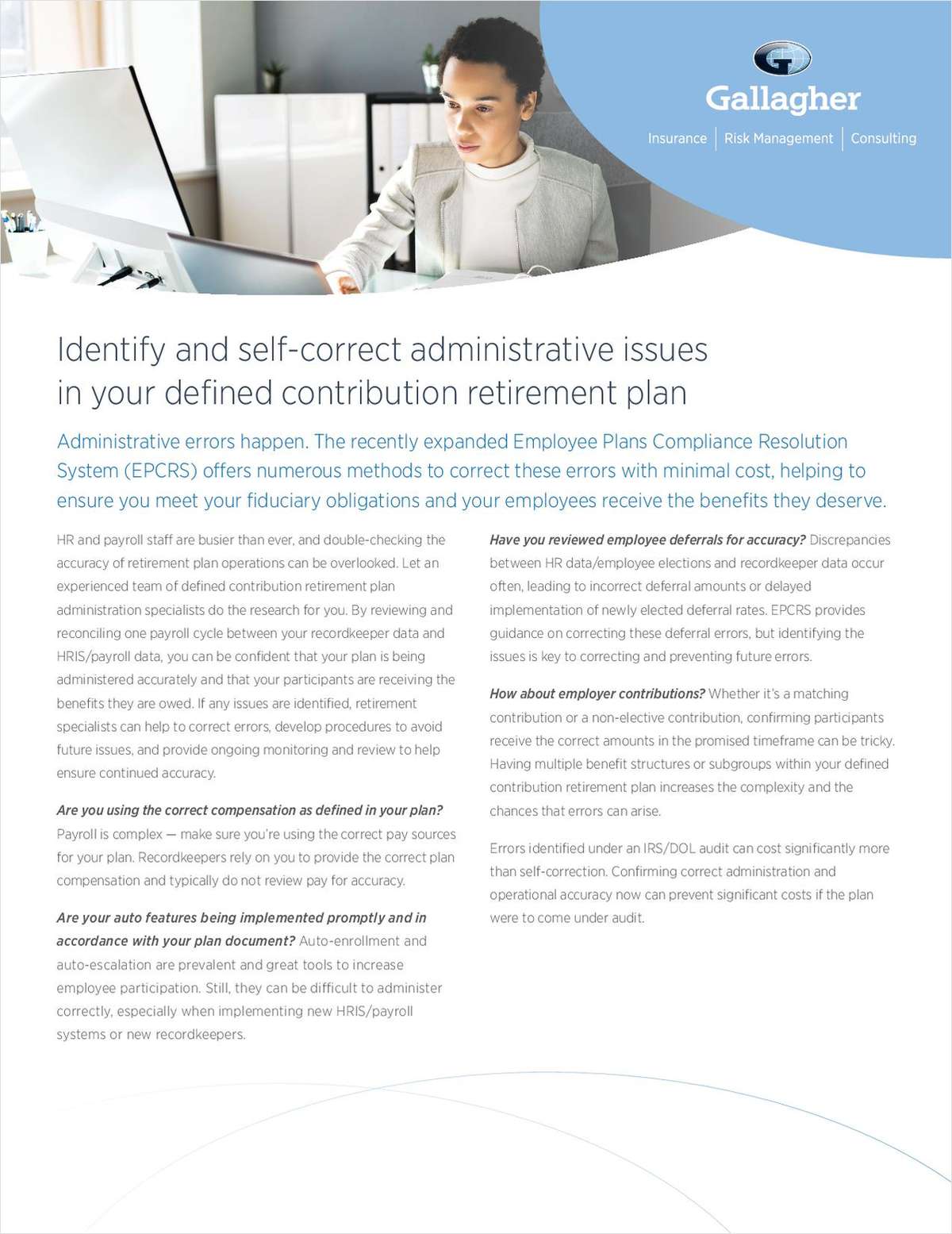Most U.S. workers have a positive view of 401(k) plans—and they don’t want any tax advantages to such plans taken away.
That’s according to the Investment Company Institute’s eighth annual update of its survey “American Views on Defined Contribution Plan Saving, 2015,” which found that nine out of 10 DC plan-owning households agreed that these plans helped them think about the long term and made it easier to save.
In addition, two thirds of plan-owning respondents also agreed that saving from every paycheck made them less worried about the stock market’s performance.
Asked about possible changes to the tax code surrounding the amounts people can contribute and tax treatments of DC accounts, it’s probably not surprising that 90 percent opposed the notion of decreasing the amount that individuals can contribute to such accounts and 88 percent disagreed with actions to dispense with the tax advantages they provide.
In fact, 80 percent of households that have DC accounts said the tax treatment of their retirement plans is a big incentive to contribute.
Respondents also weren’t thrilled with other ideas the survey asked about.
Approximately 80 percent of respondents disagreed that retirees should be required to trade a portion of their retirement accounts for a fair contract promising them income for life.
That could be problematic, since most 401(k)s do not provide a means of drawing a lifetime income. Workers don’t necessarily even realize that, since they look almost exclusively to Social Security and pensions—not DC plans—for sources of lifetime income.
In addition, recent Employee Benefit Research Institute data—and the opinion of some industry experts—seem to indicate that DC plans don’t do as well at replacing income for participants in lower income brackets as defined benefit plans.
Another idea that met with respondent resistance was the survey’s queries about whether individuals ought to be making the investment decisions in their own accounts.
Workers are notoriously hands-off about actually making choices—either investment or contribution level—without default settings in plans taking the initiative.
Also, research indicates people make poor choices when confronted with too many investment options. Despite that, almost 90 percent disagreed with not allowing individuals to make investment decisions in their DC accounts, and 83 percent disagreed with investing all retirement accounts in an investment option selected by a government-appointed board of experts.
Complete your profile to continue reading and get FREE access to BenefitsPRO, part of your ALM digital membership.
Your access to unlimited BenefitsPRO content isn’t changing.
Once you are an ALM digital member, you’ll receive:
- Breaking benefits news and analysis, on-site and via our newsletters and custom alerts
- Educational webcasts, white papers, and ebooks from industry thought leaders
- Critical converage of the property casualty insurance and financial advisory markets on our other ALM sites, PropertyCasualty360 and ThinkAdvisor
Already have an account? Sign In Now
© 2025 ALM Global, LLC, All Rights Reserved. Request academic re-use from www.copyright.com. All other uses, submit a request to [email protected]. For more information visit Asset & Logo Licensing.








